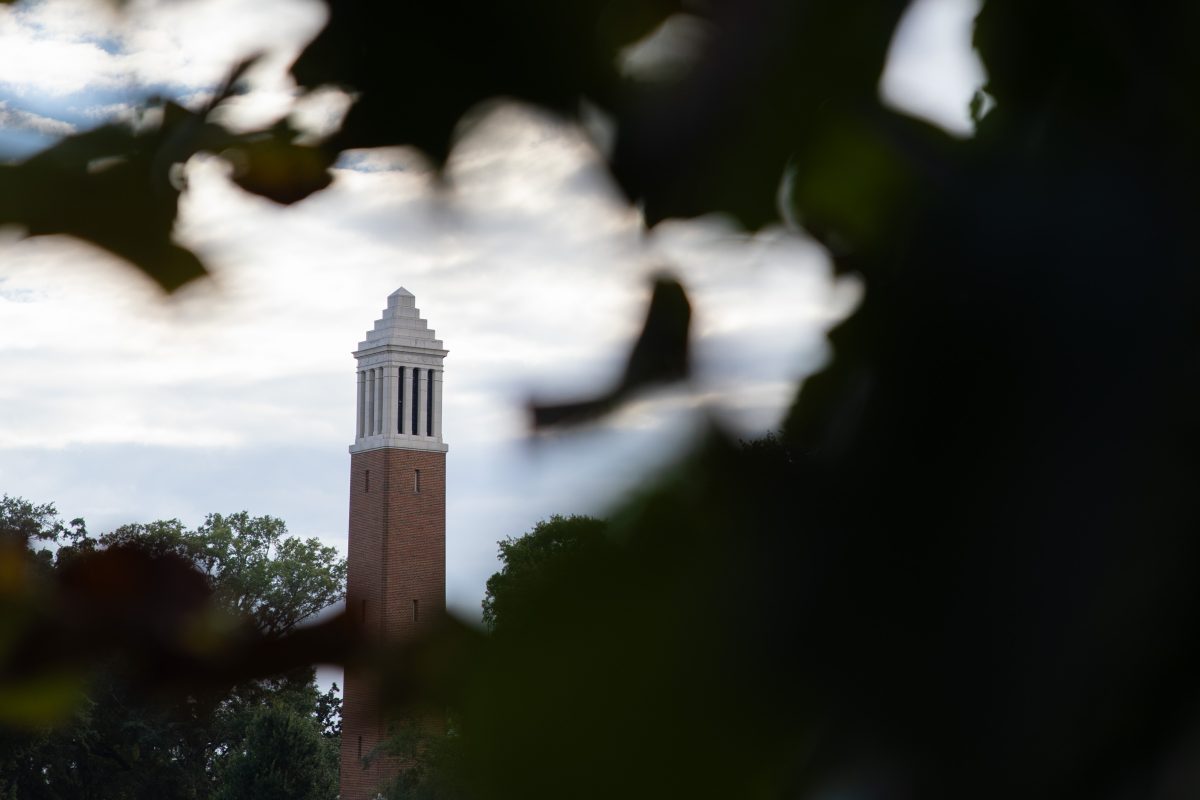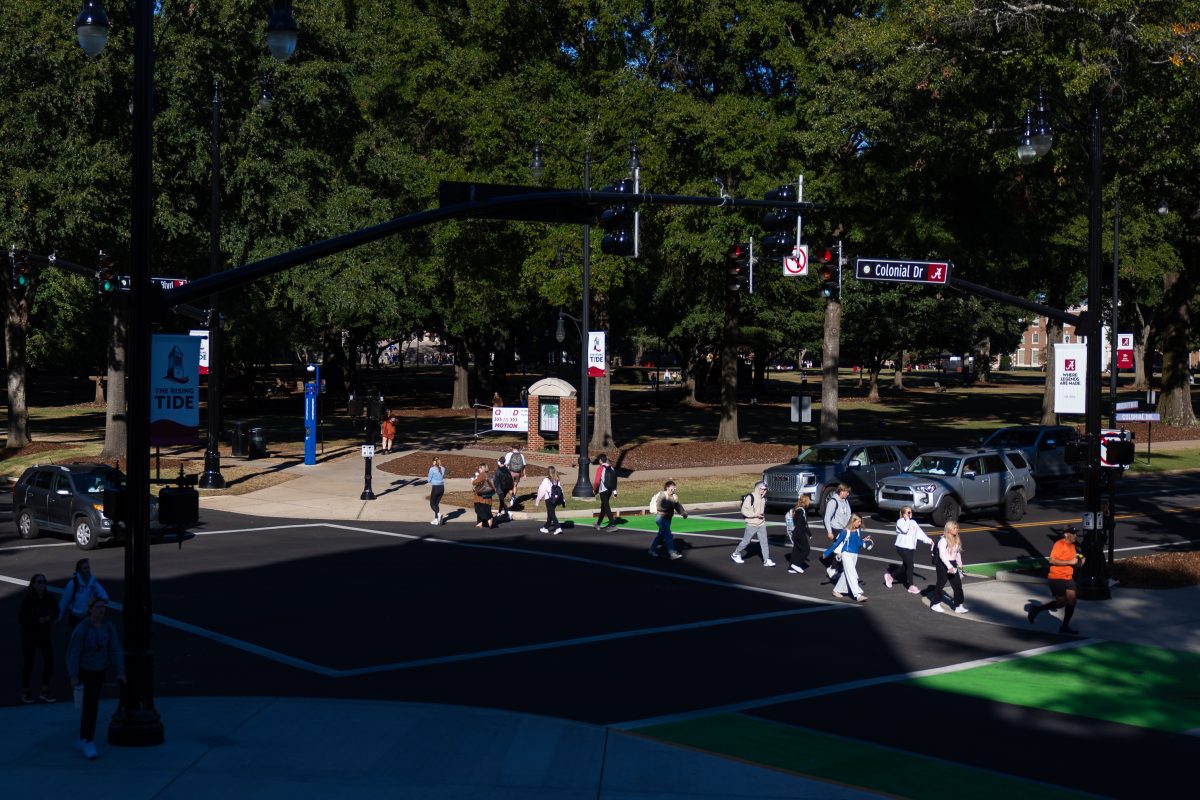On June 2, the Alabama State Legislature passed House Bill 56, voting 25-7, and sending the bill to the desk of Governor Robert Bentley. Signed on June 9, 2011, the new statewide law, also known as the Beason-Hammon Alabama Taxpayer and Citizenship Protection Act, has been deemed the strictest anti-immigration bill in the country.
While the law cracks down on nearly all aspects of undocumented immigration – transportation, employment, education, housing, and law enforcement – the law will also affect public universities, including the University of Alabama.
No change in admissions
The bill states in section 8 that it is illegal for an undocumented immigrant to enroll in or attend any public postsecondary education institution in the state without “lawful permanent residence or an appropriate nonimmigrant visa.”
While this is a new provision statewide, the University of Alabama’s current admissions policy already adheres to this requirement, requiring all students who are non-citizens to provide a copy of their permanent resident card or visa.
Cathy Andreen, director of media relations at the University, said no admissions policy will change because of this law.
“UA does not knowingly admit students from other countries without the appropriate visa. Current students who indicated that they were non-citizens when they applied were required to provide a copy of their permanent resident card or visa,” Andreen said. “The University of Alabama expects all students to adhere to both the letter and spirit of our admissions requirements.”
“A human rights violation, plain and simple”
Lisa Elizondo, a senior majoring in American studies, said she believes there’s a lot of work to be done in the country with immigration laws and regulations, but does not see HB 56 as a solution to the problem. She said that it’s inclusion of “a complete violation of human rights” – the mandate that one cannot transport an undocumented immigrant without the threat of prosecution – is problematic.
“That’s not about legal status or anything like that to me. It’s a human rights violation, plain and simple, and I think a lot of that comes from a fear, like a xenophobia,” she said. “I don’t think it’s about laws and regulations. I think it’s about a different culture, different people, different skin color, unfortunately.”
Additionally, Elizondo said she thinks the banning of undocumented immigrants from public universities is a problem with the law.
“I think that if [undocumented immigrants are] here, like it or not, they’re here, and if there’s one thing that’s going to advance this country … it’s definitely education,” she said. “So denying the right to education is definitely a step in the wrong direction … I think that’s definitely to the state’s detriment and ultimately to the country’s detriment.”
Finding work will prove even more difficult
While it appears at the surface that the law will only affect undocumented immigrants interested in attending a public university in Alabama, Caitlin Sandley, organizing and outreach coordinator for the Hispanic Interest Coalition of Alabama (¡HICA!), an agency that serves as both a social service provider and community organizing catalyst, said the effects will be seen in other areas of campus, specifically the international community.
According to the law, it is illegal for an unauthorized immigrant to solicit or apply for work.
Sandley said students who are here on an international student visa don’t necessarily have work authorization, but there are programs available for students to obtain this authorization.
One such program, Curricular Practical Training (CPT), is an opportunity for international students to have an internship that relates to their course of study for the school year.
However, Sandley said CPT requires that you have to have a job before you can apply with the federal government for permission to work in that job.
“The trick that comes in with [HB 56] is that it is illegal to solicit a job before you have work authorization, and you can’t get a job so you can get work authorization,” she said. “That really could limit a lot of opportunities for international students at UA.”
Impact on international students
Sandley said the law will negatively impact the environment at public universities due to its effect on both international students and undocumented Alabama citizens.
“I think no university will deny that having the presence of international students and a diverse student population is incredibly important to the learning experience, so in as far as this law both turns away international visa students or students who are interested in studying abroad in the U.S., that’s not a benefit,” Sandley said. “But also in as far as this law keeps undocumented students from enrolling, that’s also not a benefit.”
Elizondo said the effects of the law will not be seen at least for a few years, as programs that were put in place for children of immigrants disappear. Elizondo herself recently witnessed the ending of a program that helped get her to the University with the elimination of the National Hispanic Scholar Scholarship. She said the last UA student to receive this scholarship was in the class of 2013.
“In 10 or 15 years, you’re going to see a lot of children of immigrants, when they grow up, there’s going to be nothing in place for them … If you’re living in Alabama, if you were born there or even if you were just raised there, you’re a contributing member of the state, so to not have something in place will discourage education for those people,” Elizondo said. “It’s going to become a big issue in the next 10 years or so.”
Sandley said ¡HICA! plans to actively fight against the bill and anticipates a large number of students involved in protesting the law.
“I think students are just uniquely interested in current events, particularly around issues in social justice … We’ve gotten a good response and expect a lot of college student engagement in the coming action against this law.”








